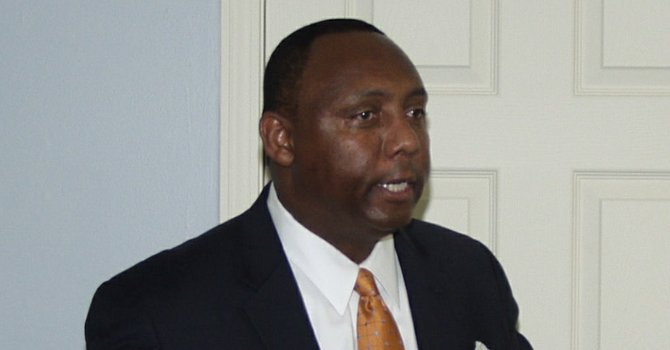In a presentation last week to the Joint Legislative Budget Committee, MDOC Commissioner Chris Epps told lawmakers that the agency needs an additional $4.3 million in the current 2013 fiscal year to build a youthful offender unit (YOU) at the Central Mississippi Correctional Facility in Pearl per a March court order. Photo by File Photo/Jackson Free Press
The Mississippi Department of Corrections needs about $11.3 million to run some of its youth programs for the next two years.
In a presentation last week to the Joint Legislative Budget Committee, MDOC Commissioner Chris Epps told lawmakers that the agency needs an additional $4.3 million in the current 2013 fiscal year to build a youthful offender unit (YOU) at the Central Mississippi Correctional Facility in Pearl per a March court order. The requested sum represents $2.5 million in capital costs and another $1.8 million to operate the facility.
For the 2014 fiscal year, which begins July 1, 2013, Epps asked for $3.8 million to run the CMCF youth unit and $3.3 million for medical services at the Walnut Grove Youth Correctional Center.
Physical, sexual and psychological abuse of child offenders at privately run Walnut Grove led to a class action lawsuit settled earlier this year. This summer, Utah-based prison contractor MTC assumed operations from GEO Group of Boca Raton, (Fla.), which previously held the contract.
In recent years, youth-justice advocates such as the Southern Poverty Law Center have sounded the alarm about the treatment of kids not just at jails and prisons around the state, but also in local school districts, including in Jackson.
On a conference call with reporters this morning, the SPLC announced its Teaching Tolerance program aimed at fostering understanding and respect for diversity among students. The program, which takes place Oct. 30, asks students to "challenge social and racial boundaries" simply by sitting with someone new at lunch for one day.
Maureen Costello, director of the Teaching Tolerance Project, said the National Mix It Up at Lunch Day initiative is part of Teaching Tolerance's work with teachers and school districts on diversity training.
Jody Owens, the SPLC Jackson office's managing attorney, called Teaching Tolerance's initiatives a way to address the problems that have plagued Mississippi's schools and prison internally.
"It's a change of culture that we're trying to establish in these school systems," Owens said. He added that many of the issues that send young people into the criminal justice system begin with students' feeling isolated in classrooms.
"Kids are being punished for behavior that has a lot to do with not being included in the classroom and having an inclusive learning environment in which all student can learn," Owens said.



Comments
Use the comment form below to begin a discussion about this content.